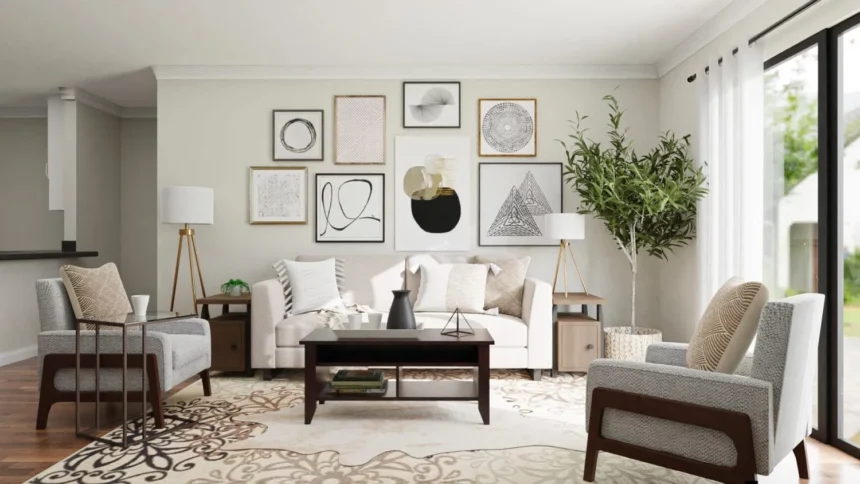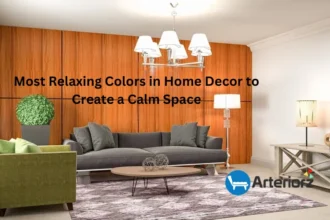When it comes to decorating a room, it’s not just about placing furniture and hanging up artwork. Layering plays a pivotal role in transforming a space from ordinary to extraordinary. It involves adding depth, dimension, and personality, creating an environment that feels curated and inviting.let’s dive into Details for How to Layer a Room When Decorating?
Table of contents
What is Layering in Room Decoration?
Layering, in the context of decorating, refers to the strategic placement of various elements to build depth and visual interest within a space. It’s about harmonizing different elements such as colors, textures, furniture, accessories, lighting, and patterns.

Importance of Layering
Layering is essential as it adds richness and complexity to a room. It elevates the aesthetics, making the space feel more dynamic and welcoming. It allows for personal expression and showcases individual style, making the room feel curated and not just assembled.
Elements of Layering in Room Decoration
Colors and Textures
Choosing a color palette and blending textures is fundamental in layering. Combining complementary colors and mixing textures like soft fabrics with rough materials adds depth to the room.

| Elements of Layering | Explanation |
| Colors and Textures | Select a color palette that harmonizes and contrasts, integrating various textures such as smooth fabrics, rough wood, or metallic finishes to create depth and interest. |
| Furniture and Accessories | Mix furniture of different scales and styles to avoid monotony, and add layers using accessories like rugs, throw pillows, and art pieces to create visual diversity. |
| Lighting and Patterns | Place lighting strategically to highlight specific areas and introduce patterns through wallpapers or textiles to add depth and character to the space. |
| Scale and Proportion | Utilize varying sizes of furniture and decor to create a sense of balance and visual interest while ensuring that proportions align harmoniously within the room. |
| Functionality and Flow | Consider the functionality of the space and ensure a cohesive flow by arranging furniture to accommodate movement and activities, maintaining a balanced visual appeal. |
Step-by-Step Guide to Layering a Room
Assessing the Space
Evaluate the room’s size, natural light, and existing elements to determine the direction for layering.
Choosing a Focal Point
Identify a focal point or area to anchor the room’s design around, whether it’s a fireplace, a piece of furniture, or a striking artwork.

Selecting Colors and Textures
Create a cohesive color scheme and experiment with various textures to add depth and warmth.
Furniture Arrangement
Arrange furniture in a way that promotes flow while mixing different styles and heights.
Adding Accessories and Décor Layer when Room Decorating
Incorporate accessories like rugs, curtains, cushions, and artwork to enhance the room’s character.
Balancing Lighting and Patterns
Install lighting fixtures strategically to illuminate the space and introduce patterns that complement the room’s theme.
Tips for Effective Room Layering while decoration
Blend various patterns and textures but ensure they complement each other to avoid overwhelming the space. Introduce elements that draw attention, such as statement furniture or unique artwork, to create focal points.
Color Cohesion:
- Ensure a cohesive color palette throughout the layers. Use a mix of colors that complement each other to tie the room together.
Scale and Proportion:
- Play with varying sizes and heights of furniture and decor items to create visual interest. Mix larger statement pieces with smaller accents for balance.
Layering Rugs:
- Experiment with layering rugs of different textures, sizes, and patterns to add depth and coziness to the space. A larger neutral rug as a base can be complemented by a smaller, bold-patterned rug on top.

Mix Furniture Styles:
- Combine different furniture styles to add personality and uniqueness. For instance, blend modern and traditional pieces to create an eclectic vibe
Conclusion
Layering a room during decoration is an art that transforms a mundane space into a personalized haven. By blending colors, textures, furniture, lighting, and patterns strategically, one can create a harmonious and visually appealing environment that reflects individual style.
Readmore : Bedroom Decor Mistakes to Avoid
FAQ’s
Mix patterns by varying scale and using a common color palette to maintain cohesion.
No, layering can be applied to any room size by adjusting the scale and quantity of elements.
Lighting adds depth and ambiance, enhancing the layers and highlighting design elements.
Yes, layering can be applied in minimalist spaces by focusing on textures and subtle contrasts.





